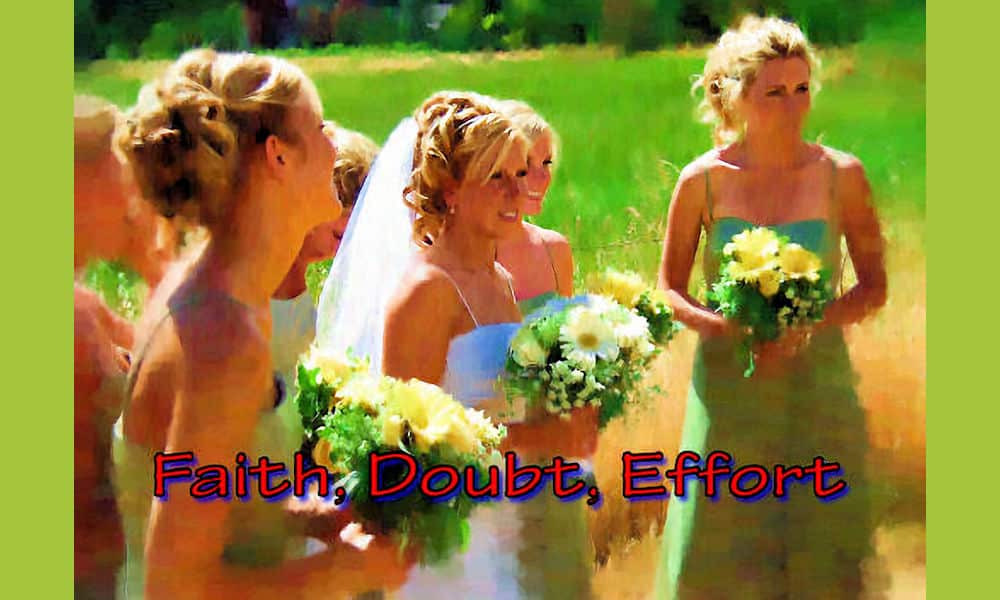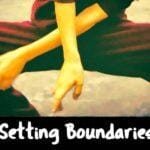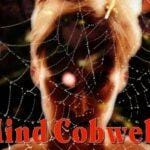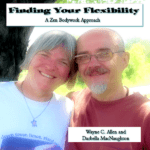Great Faith. Great Doubt. Great Effort. — the cornerstones of an enlightened life, suggested to us by the Buddha.
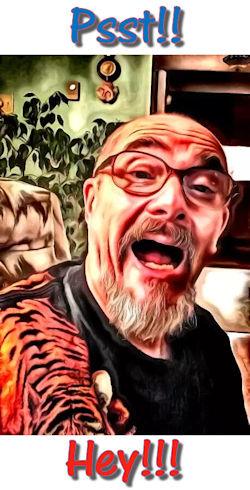
Psst!! Hey!!!
** Want more great writing designed to help YOU to shift your behaviour?
** Want to learn how to find, build or deepen your principal relationship?
** Want to know more about Zen living and being?
Check out Wayne’s books! (amazon link)
Or, check them out right on our site.
There’s this thing we could call the leap of faith, which lies directly between convention and fully living.
Like many things, there’s a orderly (or not so orderly) progression.
Here’s how it goes.
Most people enter adulthood as fundamentalists — by that, I mean that they mindlessly follow the rules and regulations of their tribe, culture, and family.
They have a burning desire to fit in, so as not to ruffle feathers, or be seen as an outsider. Thus, everything is about doing things “the right way,” even though such thinking leads to semiautomatic, unreflective being.
Society wants us to behave “correctly” in all areas, such as:
- relationship/marriage,
- child rearing,
- employment,
- political/socio/religious actions and perspectives.

People believe that such fundamental things as how we relate, how we do “what, and with which, and to whom,” what career to follow — in short, who we are and how we think, is graven in stone.
We fear the supposed ostracization that we imagine will result from disobedience.
And certainly, given the last 100 years and genocides, there’s no question that appearing different can lead to extermination.
Possible, yet not likely, for the majority of us.
Yet, many sit in the middle of a great pile of reeking dissatisfaction, and spray room freshener so as not to notice the stench.
The way out is a path, one we describe again and again, in different ways.
Great Faith. Great Doubt. Great Effort. Really, it begins with a commitment to an article of faith — or, Great Faith.
This is not “faith in someone” (God, etc.) but rather the belief that things can be different.
Faith is described as “conviction about something unseen, or not currently present.” Without an underlying faith–without believing that it is possible to engage with life differently, despite never having tried it–we are doomed to “pile sitting.”
Faith is choosing to look closely at the rules you operate under, to look closely at how you are and who you are, and to grasp the possibility that, if I change my actions, I may get different results.
This seems so obvious as to be not worth stating, but here is the “thing” that keeps most people stuck.
We become heavily invested in the maintaining the status quo, and in supporting our culture’s norms, while remaining fixed in blaming others for our issues. This external focus means that, for the majority, self examination is threatening, and without an iron-clad guarantee of success, they’d rather just sit there, thank you very much.
But lets just say that you are sick and tired of your little pile, and decide that you have faith that shifting to another way of being is possible. With effort, but possible.
How do you move from fundamentalism?
Great Doubt.
The Buddha said,
Believe nothing, no matter where you read it, or who said it, no matter if I have said it, unless it agrees with your own reason and your own common sense.
And,
Do not believe in anything simply because you have heard it. Do not believe in anything simply because it is spoken and rumored by many. Do not believe in anything simply because it is found written in your religious books. Do not believe in anything merely on the authority of your teachers and elders. Do not believe in traditions because they have been handed down for many generations. But after observation and analysis, when you find that anything agrees with reason and is conducive to the good and benefit of one and all, then accept it and live up to it.
Here’s the key.
Initially, there are 2 things to question. First and foremost, you must question everything you have learned from your society / parents. Secondly, question your willingness to stay stuck, doing the same thing.
Everything, each principle, must be tested. Note that the Buddha provides two arenas for testing.
- 1) reason and common sense, and
- 2) observation and analysis.
Reason and Common Sense—Our exploration, or Great Doubt must begin with a rigorous self and rule analysis.
“If I think this way, I act this way. If I act this way, I get this result. Do I want this result? No! OK, then I must change both what I think and how I act, or at the very least, how I act.”
Reason and common sense dictate that what I say I want, what I do, and what I get should match. Thus, if I say I want good communication, and I fail to communicate, and then I blame my partner, all of this might well fit our culture’s habit of blaming “the other,” while sitting on our pile.
But if I exercise Great Doubt, I might notice that the part I have control over — whether I communicate — is right there, for me to do something about. But only if I exercise my doubt by getting rid of the “blame others” rule, AND then do something different!
Observation and analysis—I can’t actually observe “just thinking about” something. I can only observe something physical. (Imagining a pizza is not the same thing as observing a real one.)
I may have all kinds of fears about what changing a behaviour will lead to, (like the old joke, “Why don’t Baptists have sex standing up? Answer: “It might lead to dancing.”) but I won’t know what actually happens unless I do something different.
This is what the Buddha meant by not simply buying into new ideas. Rather, it was, “Try it out. If it doesn’t work, then drop it. But if it DOES work, you know what you must do!”
We use Great Faith in the process we choose to live by, and Great Faith in people we trust who seem to be living as we would choose to, as the catalyst to begin challenging what we believe. Great Faith dances with Great Doubt.
Great Effort is demonstrated in behaviour (obviously!)— and this is the leap of faith.
Don’t you just love circles?
The reason it’s a leap of faith is that you are by definition required to exert effort doing something new — completely new — with no assurance that you’ll like the result.
You do it because you KNOW you hate what you are getting, and hate sitting in your pile. But moving through Doubt to Effort requires actually doing something, and that’s scary.
So, here are three observations:
Assuming that a leap of faith is across the chasm between uncertainty and stability, it is best
- 1) to leap unburdened by a backpack,
- 2) to not attempt to make the leap in two jumps.
- 3) to not straddle the gap.
Leap Unburdened

You can’t take anything with you — not your stories, not your friends, relatives, partners.
They can also choose to leap, but leaping is a solo event.
Many want to bring their victim stories along, simply out of attachment to them. “My mom never loved me.” “My dad abused me.” “Everyone betrays me.”
These things are the waste products of your former confusion, and have no place “on the other side,” where the rules are different. You really must drop all your stories.
There is effort enough required to leap — bringing along a life time of stories means a nose dive into the void.
Leap
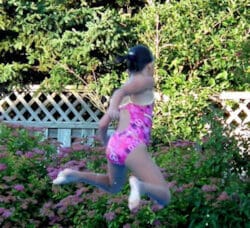
There is no half way attempt.
Many are the people who want to try a bit, have a rest, take a week or month or year off, an then try a little more. They diddle, divert, and play at change.
The gap is there, and it’s real.
You can’t walk across, or go across in stages. A leap of faith, Great Effort, is a leap, singular. You back up, run like hell, and leap. You engage fully, no excuses, nothing held back.
You open every cell of your being, open every part of you, and fling yourself heedlessly into the gap. Leap, and you will land unscathed on the other side. Dick around, fiddle around, dawdle, and it’s nose dive into the void time.
Un-straddle Yourself
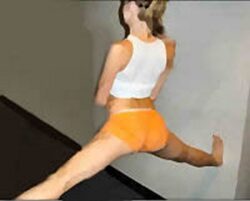
Great Faith. Great Doubt. Great Effort.
And then there are those who want it all. One woman I knew, a therapist, wanted me to train her to do bodywork. I said, “Well, why don’t you have several sessions first, and see first hand what it’s about.” She said, “You mean me? I don’t want to do it, I just want to learn it! ”
This leap means leaving everything behind, including what you pretend you know.
You must trust (have faith in) your path, unburden your back, and let everything go. If you attempt to straddle the gap, keeping hold to, say, a dysfunction relationship while engaging in another one, you are going to get pulled in half, (or end up doing a nose dive…)
The leap of faith is just that… a leap. You typically land on the other side, in a heap, alone and unburdened. The territory is new and strange, and you are unsure and panicky. What to do, what to do?
Look around. Likely a guide is right there, ready and willing to give you some direction and a sense of what works “over here.” And a gentle touch to heal your rawness, and a word of encouragement, and a kick in the ass. Because now the living and the walking start in earnest. Into a world where you question everything, trust yourself, and act like you’re whole, open, vulnerable and complete.
Because you are. Even if you don’t quite believe it.
Leap, and you will.
Great Faith. Great Doubt. Great Effort.

